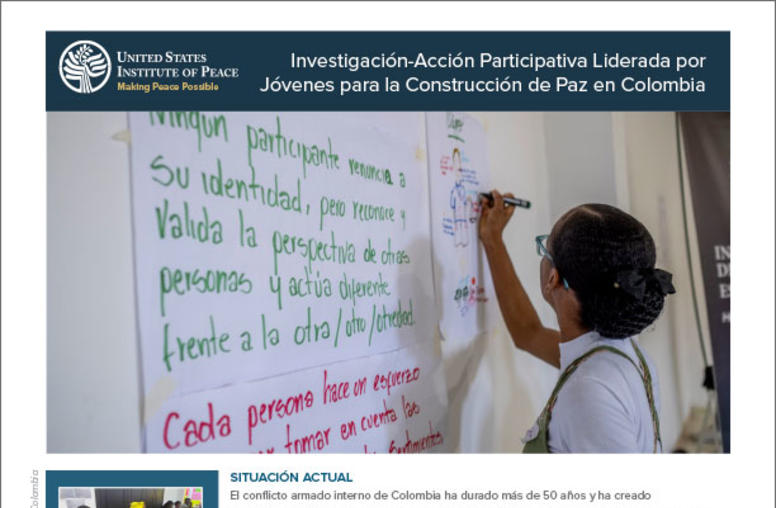Prospects for a Humanitarian Accord in Colombia
USIP invites you to a public event to discuss the hostage situation in Colombia, the options for a humanitarian accord between the government of Colombia and the country’s FARC guerilla movement, and the implications of such an accord for future peace in that country.
More than 16,000 people—including prominent legislators, government ministers, presidential candidates, business people, and U.S. contractors—have been kidnapped in Colombia in the past five years, and some 4,000 kidnap victims are currently being held.
FARC hostages include senators, representatives, governors, dozens of military officials of significant rank, a presidential candidate and her vice presidential running mate, and three U.S. Department of Defense contractors.
How do the relatives of these kidnap victims view the options for rescue and the viability of negotiations? What are the prospects for a humanitarian accord that might lead to the release of these hostages and how might such an agreement lead to a resolution of Colombia’s longstanding conflict? What options are available to the government and the international community to press for the release of hostage victims? Please join us to discuss these and related issues.
Speakers
This event will include several relatives of Colombians who have been kidnapped by the FARC in the last decade. The group has traveled to Washington, D.C. this week to present testimony at the annual hearings of the Organization of American States’ Inter-American Commission on Human Rights. Their first-hand experiences will shed light on the intricacies of negotiations in domestic conflicts and the implications of international involvement.
**The majority of the speakers will speak in English, with the exception of a few. Translation will be provided.**
- Yolanda Pulecio, mother of Ingrid Betancourt, former senator and presidential candidate, kidnapped in 2002;
- Marleny Orjuela of ASFAMIPAZ, the association of relatives of army and police officers being held hostage;
- Juan Sebastian Lozada, son of Gloria Polanco de Lozada, former congresswoman, kidnapped in 2001. (Lozada was formerly held hostage for three years by the FARC too; his father Jaime was killed by FARC last year);
- Carolina Perez, daughter of Luis Eladio Pérez, former senator kidnapped in 2001;
- Caterina Heyck, international humanitarian lawyer;
- Lucy de Gechem, wife of Jorge Gechem, former senator kidnapped in 2002;
- Angela Giraldo, sister of Francisco Giraldo, Valle del Cauca departmental legislator kidnapped in 2002;
- María Teresa Paredes, wife of police Colonel Luis Mendieta, hostage since 1998;
- Claudia Cecilia Rúgeles Flores, wife of former Meta Governor Alán Jara, hostage since 2000;
- Ginny Bouvier, Moderator
Senior Program Officer, U.S. Institute of Peace.
Archived Audio
To listen to audio or to view video, please click on the links provided below. You also can right click on the links and choose "Save Target As" or "Download Linked File." This will save the file to your computer and then allow you to play it in your media player directly. More Audio Help.
- Listen to the audio from this event.
1:53:30 - 19.9MB


